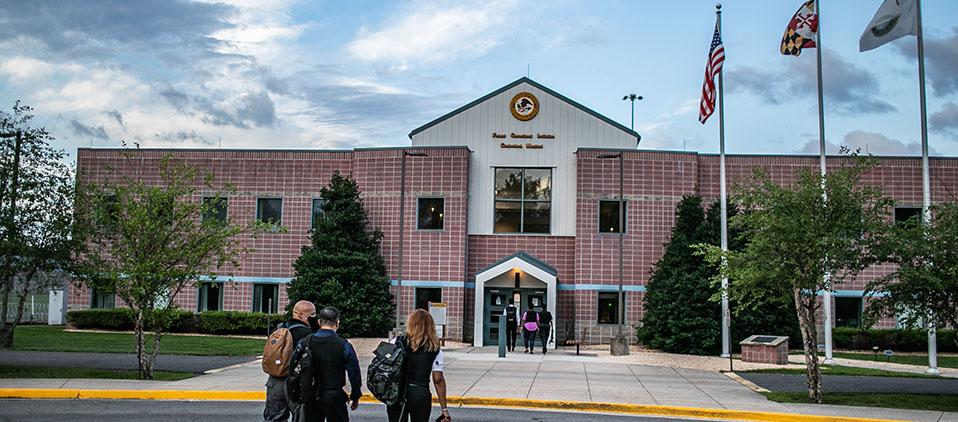Two incarcerated students filed complaints against Washington, D.C., on Feb. 22 for failing to provide adequate special education accommodations for imprisoned students.
The School Justice Project, a legal services and advocacy organization dedicated to ensuring access to education for court-involved students with disabilities, will represent the students in their upcoming trials, along with the Washington Lawyers’ Committee for Civil Rights and Urban Affairs, a committee of civil rights lawyers that works to fight inequity through legal battles, and law firm Nixon Peabody. Since D.C. does not have a long-term prison facility, those who are convicted for D.C. code violations serve time in Bureau of Prisons (BOP) facilities, which are federal prisons.
Sarah Comeau, lead attorney on the case and co-founder of the School Justice Project, said she hopes the lawsuit will bring students home to D.C. facilities, where education is more accessible than at BOP facilities.
“Because D.C. sends its young people to the Federal Bureau of Prisons facilities, they can’t access education,” Comeau told The Hoya. “That’s the whole point of the lawsuit. We want young people to be brought back home so they can enroll in school and access meaningful educational opportunities locally.”
According to a report by the Bureau of Justice Statistics, almost 38% of state and federal prisoners had at least one disability in 2016, and Comeau said the District fails to provide disabled students with the option to receive a diploma, access D.C. curriculum or attend special education classes while imprisoned in the BOP.
Comeau said the current system also lacks adult figures for young students to reach out to about their education.
“One of our clients has been working with me for years trying to get education, and the District is very much aware of these issues,” Comeau said. “But there’s no one that they could contact.”
Under the Individuals with Disabilities Education Act (IDEA), students with intellectual and developmental disabilities or impairments are entitled to an education on par with peers receiving general education.
“For over a decade, the District has deprived every eligible DC student with disabilities serving a sentence in the BOP the education to which they are entitled for the entire time they are incarcerated away from home,” the Washington Lawyers Committee said in a Feb. 22 press release.
Comeau cited Maya Angelou Academy, a public charter school for court-involved teens, as an example of an organization well-versed in providing education to incarcerated students.
The school’s model for education, which emphasizes students’ strengths in order to better their ability to build fulfilling lives, is now being rolled out in D.C. facilities and creating change for the better, according to Comeau.
“They understand the importance of providing a comprehensive and robust, meaningful education to young people,” Comeau said. “So we hope that this lawsuit will bring young people home so they can access that level of service locally.”
Marja Plater, an attorney with the Washington Lawyers’ Committee, said that under IDEA, students are entitled to transition services to help them adjust after their release if deemed necessary.
“For many people in this age bracket, they do need it and they’re not receiving it,” Plater said. “And that can include vocational skills, training and other support that would help them be able to integrate into the community.”
“Ultimately we want these young people to be educated,” Plater added. “They’re entitled to it, and their rights are being infringed upon at this time.”
Plater said studies show that receiving a high school diploma decreases the likelihood of recidivism and that students transitioning out of BOP facilities face long-term setbacks in their reintegration because of lack of access to adequate education.

“The District is denying young DC residents with disabilities in the BOP their right to an education — plain and simple,” Plater said in the press release. “Young people in the BOP want their education. Their rights matter and they deserve to return home with the skills necessary to reintegrate successfully into the community.”
The committee hopes the lawsuit will help create a system where young people imprisoned in the BOP are either educated at those facilities or housed and educated in D.C.
“Young D.C. residents who are eligible for special education and are housed in BOP should be receiving an education, and they are entitled to it,” Plater said. “And that’s what we’re hoping to change.”




















